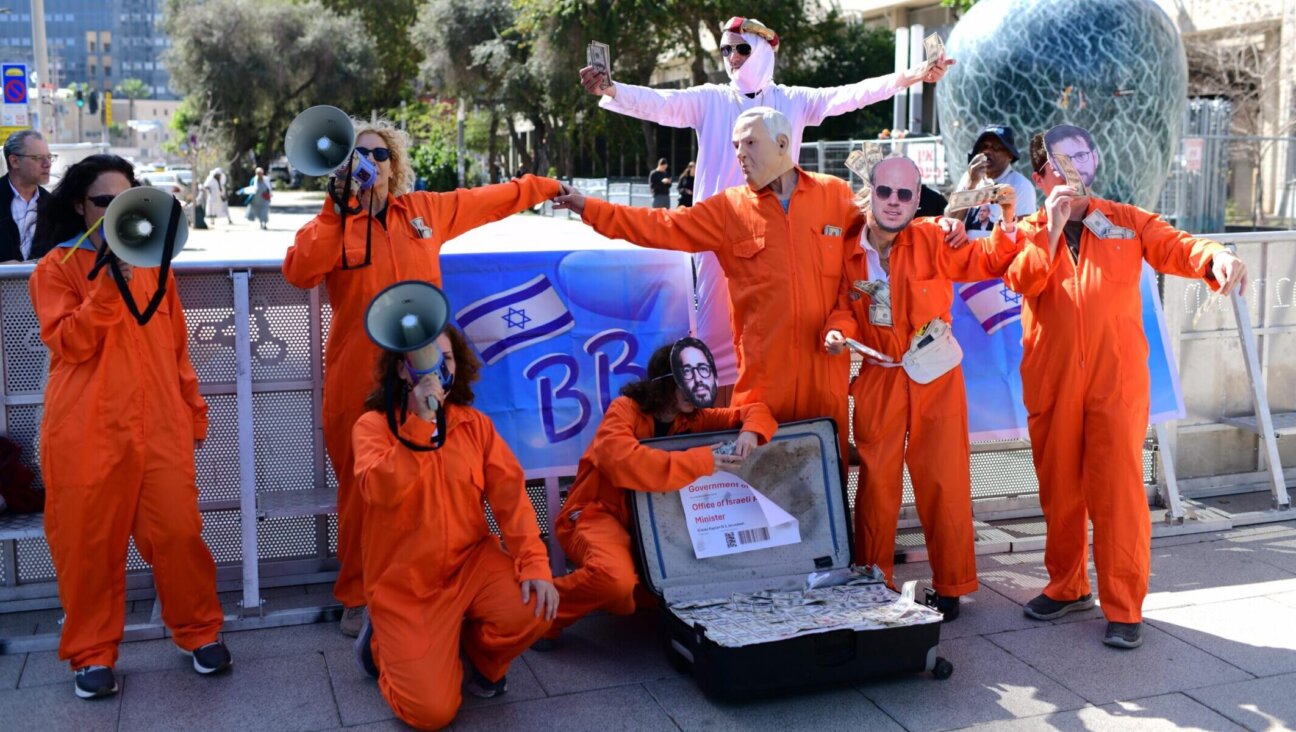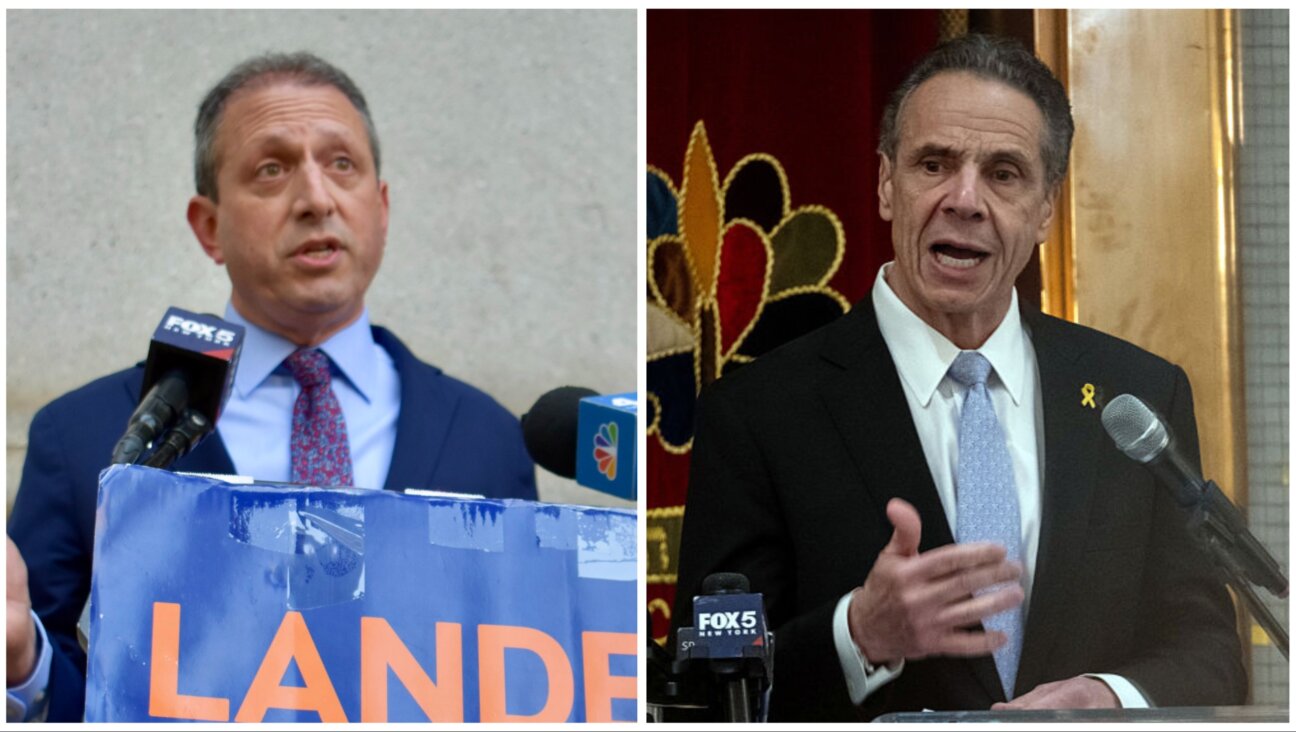New York Fails To Enforce Consent Forms for Metzitzah B’Peh Circumcision Rite

Image by getty images
It has been more than a year since New York City introduced a regulation requiring mohels to obtain written consent before performing a controversial rite that risks infecting infants with neonatal herpes.
The regulation put Mayor Michael Bloomberg at loggerheads with the ultra-Orthodox community. And it promises to be a headache for his successor, Bill de Blasio, who has said that he would maintain the consent form requirement.
Since the regulation was introduced, the city’s health department has warned of two cases in which infant boys contracted herpes following metzitzah b’peh, a rite in which the mohel places his lips directly on the circumcision wound to suck away blood. The most recent case was at the end of January.
Yet the city health department will not say whether it has ever enforced its own regulation by requesting copies of consent forms from a mohel. Nor has the city ever issued a warning to a mohel for failing to comply with the regulation.
A health department spokeswoman said the department has not warned or fined any mohels, because it “has not received a complaint about the failure to seek consent.”
That’s despite a case of neonatal herpes in the spring of 2013, in which health officials said the infected infant’s parents did not sign a consent form. In that case, the parents refused to name the mohel who performed the circumcision.
“It’s a real problem with the regime,” said Akiva Shapiro, a lawyer who represents several medical groups that support the city regulation. “There’s essentially no enforcement, and I’ve seen certain people in the community that practices MBP [metzitzah b’peh] thumbing their noses at the regulation for this very reason, saying it will never be enforced and it can’t be enforced.”
Rabbi David Zwiebel, executive vice president of America’s largest ultra-Orthodox umbrella group, Agudath Israel of America, said he had no hard evidence on compliance. However, Zwiebel added, “I’m guessing that the answer is, some mohelim are complying and some are not.”
Fourteen babies have contracted herpes following MBP since 2000, according to city health officials. Two of those babies died, and two more suffered brain damage.
The health department issued its latest health warning related to MBP on January 28. An infant was diagnosed with a rash on his genitals five days after his circumcision. When cream failed to stop the spread of lesions, he was diagnosed with neonatal herpes and admitted to a hospital for treatment.
A health department spokeswoman declined to say whether a consent form had been signed in the most recent case or whether the infant’s parents had told officials the mohel’s name. “We are currently investigating the case and won’t discuss its details,” the spokeswoman said.
Health regulations stipulate that a mohel must keep copies of consent forms for one year. Asked whether the health department had ever requested that a mohel provide a copy of a signed consent form, the department spokeswoman said, “We are not commenting beyond what was in the [January] Health Alert.”
The ultra-Orthodox community vehemently opposed the consent form regulation when it was introduced in the fall of 2012.
The form asks parents to verify that they are aware that the city’s health department advises against MBP and that there is a risk of transmission of “herpes simplex virus infection, which may result in brain damage or death.”
The regulation was put on hold during its first few months, while a group of ultra-Orthodox organizations — Agudah, the Central Rabbinical Congress of the United States and Canada, and the International Bris Association — sought a preliminary injunction to prevent its implementation. The groups argued that because they do not agree with the information on the consent form, it violates their freedom of speech.
A district judge ruled against the injunction in January 2013, paving the way for the regulation to be enforced. An appeal is currently pending before the United States Court of Appeals for the 2nd Circuit.
For centuries, metzitzah b’peh was a common practice for cleaning the circumcision wound, until some rabbis ruled that a sponge, and later a sterile pipette, could be used instead. Zwiebel said that only some ultra-Orthodox groups use a pipette, while others insist on direct oral suction.
Ultra-Orthodox rabbis do not believe that MBP poses a health risk to infants. Instead, they believe that other caregivers may have been responsible for the infections recorded in New York.
In court papers, the ultra-Orthodox groups rely, in part, on the affidavit of Daniel S. Berman, chief of infectious diseases at the New York Westchester Square Hospital, who states that “the evidence does not show that MBP has ever resulted in transmission” of neonatal herpes.
An array of groups represented by Shapiro contradicted Berman’s testimony, among them the American Academy of Pediatrics and the Infectious Diseases Society of America.
“On one hand, the plaintiffs say the department of health hasn’t collected blood samples or gotten proof of contraction,” Shapiro said. “On the other hand, people are refusing to identify the mohel, and mohels are refusing to be tested. The community’s intransigence makes it impossible to obtain the proof they say is necessary” to show that MBP causes neonatal herpes.
During last year’s mayoral race, some ultra-Orthodox groups hoped that de Blasio would get rid of the consent forms. During the campaign, de Blasio said that Bloomberg had been “wrong to simply dictate to a community on a matter of religious tradition.”
At a January press conference after taking office, de Blasio said he would keep the forms in place “while searching for a solution that we think is more effective.”
De Blasio added: “I think it’s evident that because there hasn’t been the kind of dialogue necessary to get to common ground on this issue, [that DEL] we can do a better job of coming up with an approach that I think is much more effective at protecting the lives of our children.”
The mayor’s press office did not respond to a request to explain what a more effective solution might look like.
Zwiebel said it was unlikely that he would discuss the consent forms with the new mayor until the appeal is decided. But he said that he could meet with de Blasio ahead of time to discuss how the city investigates cases of neonatal herpes linked to MBP.
“Is there an automatic assumption it must have come from a mohel during metzitzah b’peh, or is there a readiness to consider other sources of transmission?” he said.
Zwiebel added that the ultra-Orthodox community sees the city’s attempts to regulate MBP in light of recent efforts to strictly limit or ban ritual circumcision, which are gaining traction in Europe.
“We fear a slippery slope that could lead in that direction,” Zwiebel said.
Contact Paul Berger at [email protected] or on Twitter, @pdberger
























